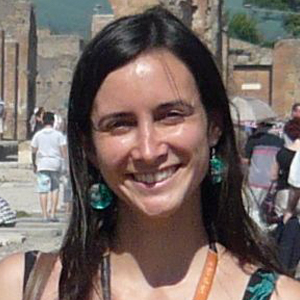Double vision
She was searching for something to contribute to a professor’s birthday symposium when she started noticing images in the protein structures he had published: a birthday present, then a cat bringing a birthday cake. She made a simple animation of the images using PowerPoint so that she could contribute something to the celebration. “It was not very artistic in the beginning,” she recalls.
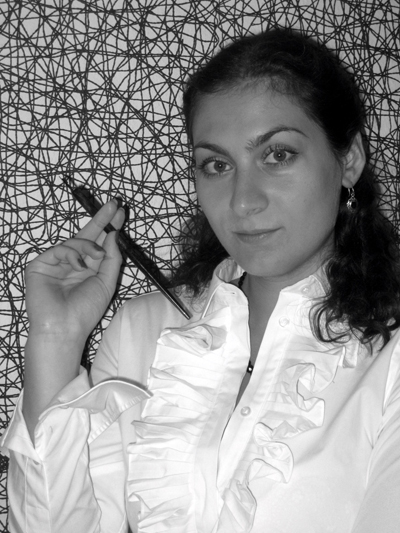
Most biochemists look to the Protein Data Bank for structural data, but Maja Klevanski looks to it for artistic inspiration. Klevanski, a graduate student at the University of Heidelberg, first got the idea of translating the ribbon models of protein structures into art when she was preparing her diploma thesis at Harvard.
But over time, her method has become more elaborate. To find her images, she rotates protein structures until she begins to see something interesting and then begins a painstaking process of drawing over the structure, redrawing and tweaking the rotation until the image in her mind is fully realized on the page.
Last year, a collage of her work titled “Nature playing chess” reached the top 10 in the illustration category of the 2012 International Science and Engineering Visualization Challenge. She says she hopes to publish a book one day that combines her art with the science behind it. “But, first of all, I have to finish my Ph.D.!” she says.
You can find more of her work at her website, where she also takes requests to re-imagine your favorite protein: www.protein-art.com.
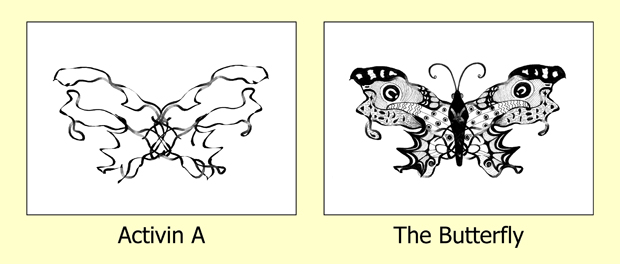
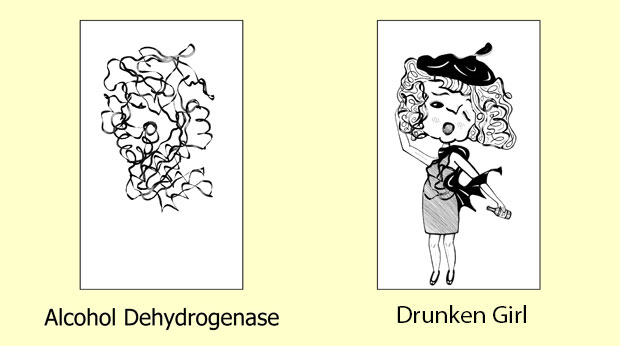
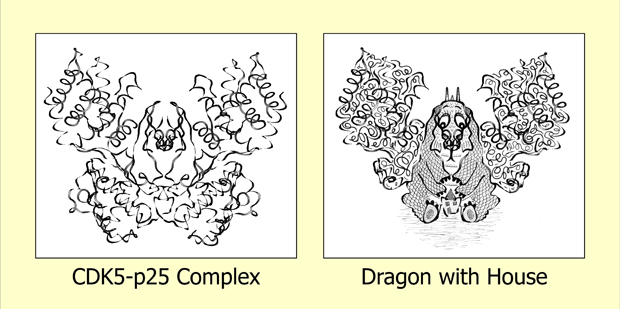
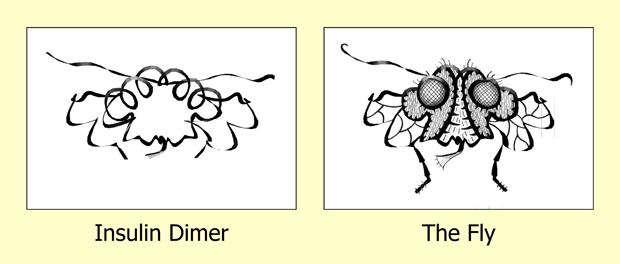
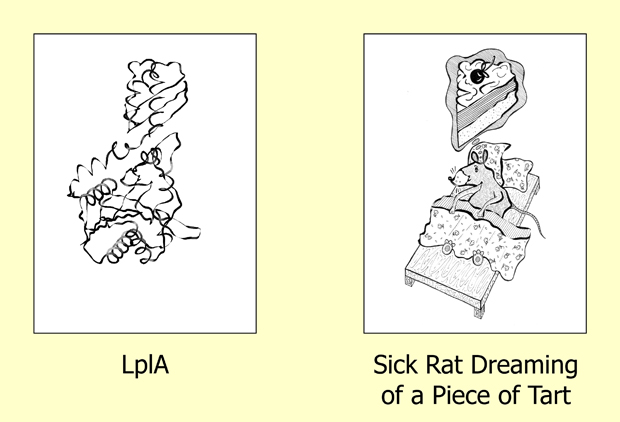
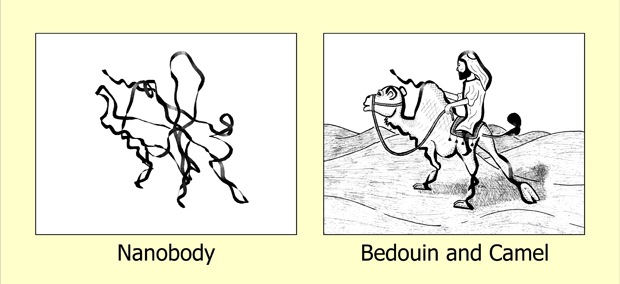
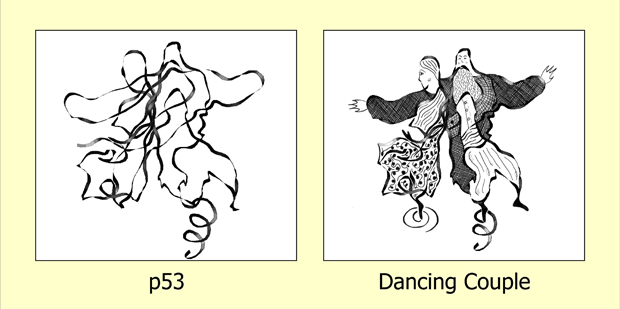
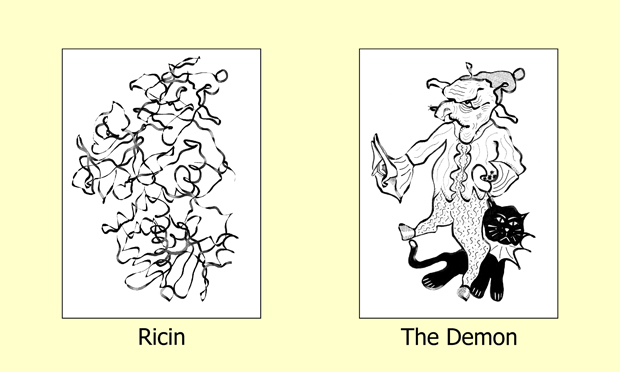
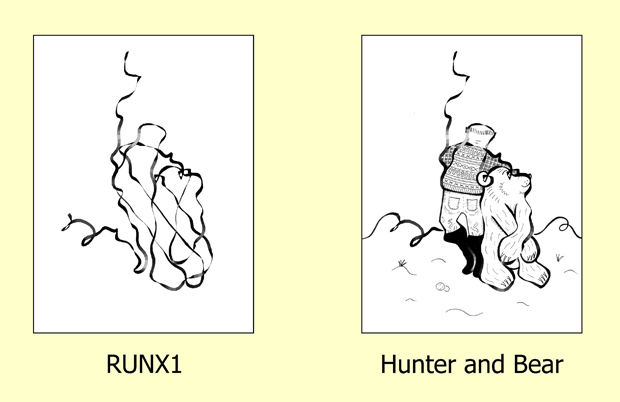
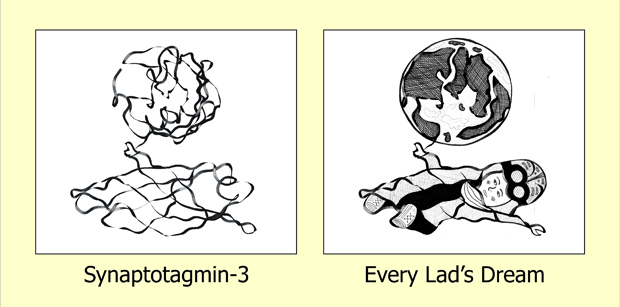
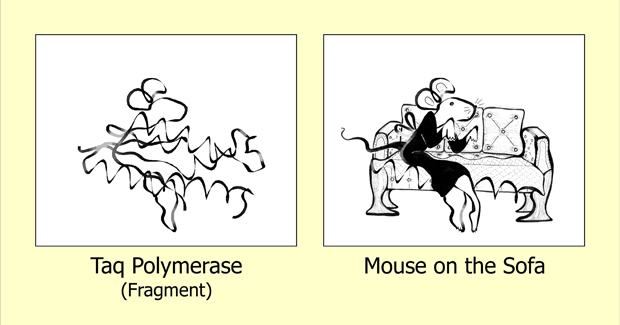
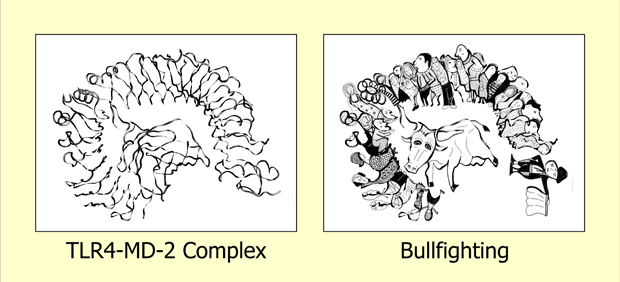
Enjoy reading ASBMB Today?
Become a member to receive the print edition four times a year and the digital edition monthly.
Learn moreGet the latest from ASBMB Today
Enter your email address, and we’ll send you a weekly email with recent articles, interviews and more.
Latest in People
People highlights or most popular articles

Finding a symphony among complex molecules
MOSAIC scholar Stanna Dorn uses total synthesis to recreate rare bacterial natural products with potential therapeutic applications.

Sketching, scribbling and scicomm
Graduate student Ari Paiz describes how her love of science and art blend to make her an effective science communicator.

Embrace your neurodivergence and flourish in college
This guide offers practical advice on setting yourself up for success — learn how to leverage campus resources, work with professors and embrace your strengths.

Survival tools for a neurodivergent brain in academia
Working in academia is hard, and being neurodivergent makes it harder. Here are a few tools that may help, from a Ph.D. student with ADHD.

Quieting the static: Building inclusive STEM classrooms
Christin Monroe, an assistant professor of chemistry at Landmark College, offers practical tips to help educators make their classrooms more accessible to neurodivergent scientists.

Hidden strengths of an autistic scientist
Navigating the world of scientific research as an autistic scientist comes with unique challenges —microaggressions, communication hurdles and the constant pressure to conform to social norms, postbaccalaureate student Taylor Stolberg writes.

